Afghan election frontrunner releases audio to 'prove' fraud claim
Abdullah's supporters protest against alleged irregularities.
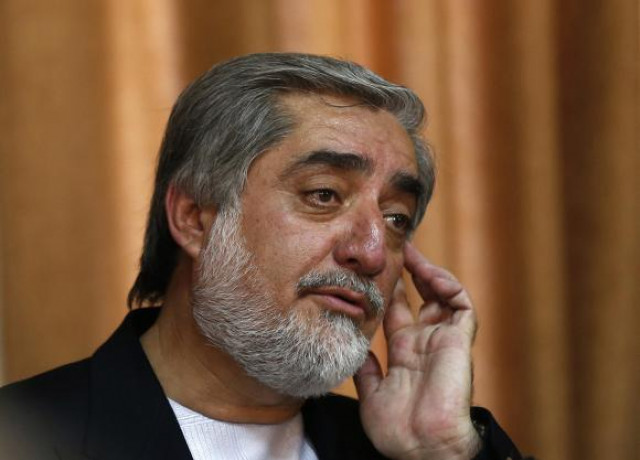
Afghan presidential candidate Abdullah Abdullah. PHOTO: REUTERS
The accusation came as hundreds of Abdullah's supporters held protests against alleged irregularities for a second day across Kabul, as a political stalemate deepens in the country.
Abdullah won the first round of the poll to succeed President Hamid Karzai, gaining 45% of the vote while his nearest rival Ashraf Ghani won 31.6%.
But he has boycotted the vote count after the second round run-off, accusing Karzai of interfering to favour his rival.
The dispute threatens to pitch Afghanistan into crisis as NATO combat troops withdraw from a 13-year war against Taliban insurgents.
A smooth election was seen as a key benchmark for the US-led coalition that has fought against the Taliban and donated billions of dollars in aid since 2001.
The allegations are centred around the secretary of the IEC, Zia-ul-Haq Amarkhail, who stands accused of irregularities during the transporting of unused ballots during the June 14 poll.
Abdullah's team at a press conference released the recordings, which total 13 minutes of poor-quality audio and purport to be conversations between Amarkhail, other IEC officials and "a member of Ghani's team".
They include Amarkhail allegedly reassuring the member of Ghani's team that staff would be "used" to favour his election.
In one recording, Amarkhail allegedly tells an IEC member from the northwestern province of Faryab to fire his entire staff and change them for Pashtuns and Uzbeks.
Ghani is a Pashtun, Afghanistan's largest ethnic group, which is strongest in the Taliban heartlands of the south and east. One of his running mates, infamous warlord Abdul Rashid Dostum is a popular Uzbek leader.
Abdullah's team has refused to disclose how it obtained the recordings and it is not possible to confirm their authenticity.
Amarkhail could not immediately be reached for comment.
Baryalai Arsalai, Abdullah's campaign manager, on Sunday said the IEC had conspired with "senior members of the government... in supporting one candidate in the election, they have organised rigging, cheating and manipulation."
He promised to release further "proof" of fraud to the media in the coming days.
Earlier, protesters who had gathered by the presidential palace chanted "Long live Abdullah" and called for the death of Afghanistan's electoral commission chief, who is handling the fraud allegations.
A similar-sized gathering in the western city of Herat saw a group largely composed of students burn their voter registration cards in protest at alleged irregularities.
Abdullah, a former foreign minister who says he was also cheated of victory in the 2009 election against Karzai, has alleged that the turnout figure of seven million in the run-off was exaggerated, and that in several provinces there were more votes than eligible voters.
Sunday's protests came a day after more than 1,000 of Abdullah's supporters marched through Kabul in another largely peaceful demonstration.
The two days of "anti-fraud" rallies were not organised by Abdullah's campaign, but the crowds appeared to be made up of Abdullah supporters.
The United Nations Assistance Mission in Afghanistan on Sunday urged "responsible" use of social media platforms to avoid increasing tensions.
"There has been a disturbing tone in some social media platforms, and we urge supporters of the candidates in the Afghan Presidential elections to refrain from inflammatory statements, hate speech or statements which promote divisive ethnic mobilization," said Jan Kubis, head of UNAMA.
Abdullah and Karzai have asked the UN to step in to solve the political deadlock.
The threat of ethnic unrest is a grim prospect for Afghanistan, where tribal loyalties are still fierce after the 1992-1996 civil war.
Abdullah's support is based among the Tajik minority and other northern tribes.


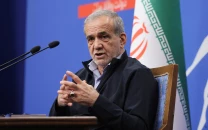
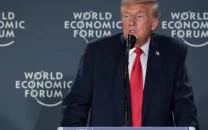

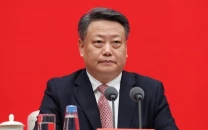
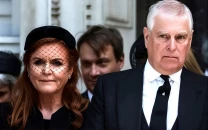












COMMENTS
Comments are moderated and generally will be posted if they are on-topic and not abusive.
For more information, please see our Comments FAQ